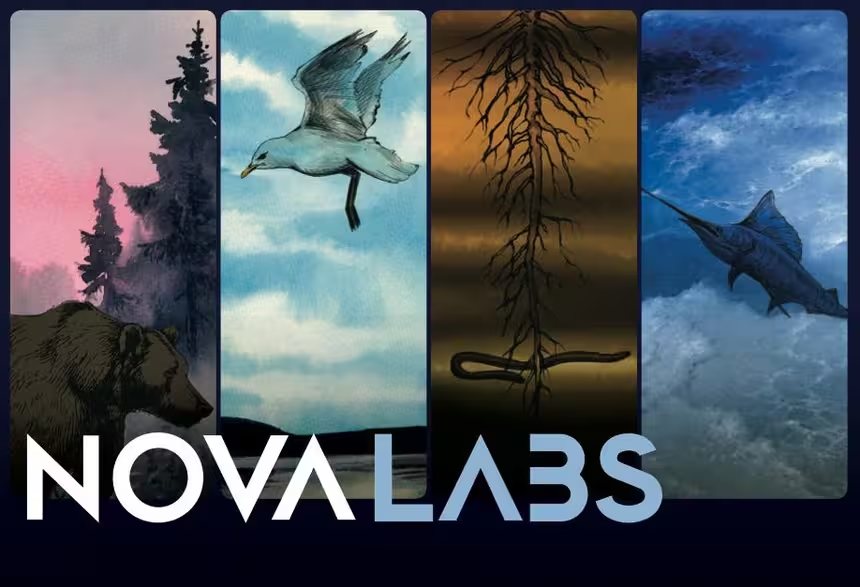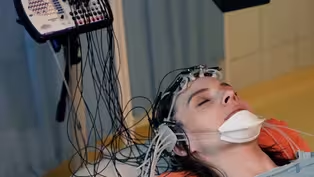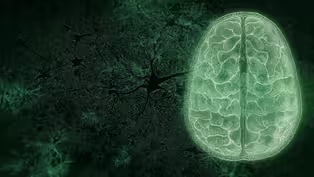
What If Part of Your Brain Was Missing?
Clip: Season 50 Episode 10 | 2m 29sVideo has Closed Captions
An injury cost Phineas Gage part of his brain, but he lost something else too.
A region located inside the prefrontal cortex processes our emotions and helps regulate our behavior. What would happen if it were gone?
Problems playing video? | Closed Captioning Feedback
Problems playing video? | Closed Captioning Feedback
National Corporate funding for NOVA is provided by Carlisle Companies and Viking Cruises. Major funding for NOVA is provided by the NOVA Science Trust and PBS viewers.

What If Part of Your Brain Was Missing?
Clip: Season 50 Episode 10 | 2m 29sVideo has Closed Captions
A region located inside the prefrontal cortex processes our emotions and helps regulate our behavior. What would happen if it were gone?
Problems playing video? | Closed Captioning Feedback
How to Watch NOVA
NOVA is available to stream on pbs.org and the free PBS App, available on iPhone, Apple TV, Android TV, Android smartphones, Amazon Fire TV, Amazon Fire Tablet, Roku, Samsung Smart TV, and Vizio.
Buy Now

NOVA Labs
NOVA Labs is a free digital platform that engages teens and lifelong learners in games and interactives that foster authentic scientific exploration. Participants take part in real-world investigations by visualizing, analyzing, and playing with the same data that scientists use.Providing Support for PBS.org
Learn Moreabout PBS online sponsorship- Phineas Gage was a railroad foreman who was working on Vermont.
And he was tamping down a hole that had gunpowder in it.
And the gunpowder ignited.
(digital explosion crashes) Sending the rod through his eye up through his brain, taking out a big patch of his brain in the process.
At first, people thought, well, this is a miracle.
This man has been unscathed from this accident.
He had memory, he had language, he had motor control.
But of course, his friends noticed a difference.
- [Luke] His life fell apart.
He had a hard time holding a job.
He lost all of his friends, and he really just struggled.
- His personality made him more fitful, irreverent, more profane.
He was cursing a lot, lewd behavior.
So he had sort of no filter.
We now know that the parts of the brain that he sort of surgically excised were involved in emotion and control.
(ominous, gong echoing music) - [Narrator] Over 100 years later neuroscientists mapped the regions of his brain that were harmed in that horrific accident.
Areas of his prefrontal cortex, including the brain's thermostat were damaged.
Which might account for why he struggled socially.
Our brain's thermometer seems to be the insula.
- But all that information needs to go somewhere else, and be integrated with other types of information.
- [Narrator] That's our brain's thermostat.
A region located inside the prefrontal cortex that processes our emotions and helps regulate our behavior.
He couldn't regulate his emotions, or process how other people might react to his behavior.
- And that was the key moment, I think, in neuroscience history, when people realized, oh it's not just that motor memory language is in the brain.
Your personality is up there, your morality is up there.
Things that make you, you, are there.
- I think we all kind of know intuitively that emotions impact our decisions.
So what sort of extra information is this giving us?
- In a lot of the scientific work that's been done on studying emotion and decision making, people have really focused on how emotions lead us to make worse decisions, maybe even irrational.
And I actually don't think that's true.
If you have a goal to not wanna harm others, and to do what's gonna be in your self-interest, emotions are actually helping us make better decisions.
(bright, bouncy xylophone music)
How Trauma Can Alter Your Biology
Video has Closed Captions
Clip: S50 Ep10 | 4m 40s | Your ancestors' experiences might influence how your brain is wired today. (4m 40s)
What Happens in the Brain When you Sleepwalk?
Video has Closed Captions
Clip: S50 Ep10 | 3m 55s | Some people can do complex behaviors like walking and driving while sleeping. (3m 55s)
Your Brain: Who's in Control? Preview
Video has Closed Captions
Preview: S50 Ep10 | 29s | Dive into the subconscious to see what’s really driving the decisions you make. (29s)
Providing Support for PBS.org
Learn Moreabout PBS online sponsorship
- Science and Nature

Capturing the splendor of the natural world, from the African plains to the Antarctic ice.













Support for PBS provided by:
National Corporate funding for NOVA is provided by Carlisle Companies and Viking Cruises. Major funding for NOVA is provided by the NOVA Science Trust and PBS viewers.





